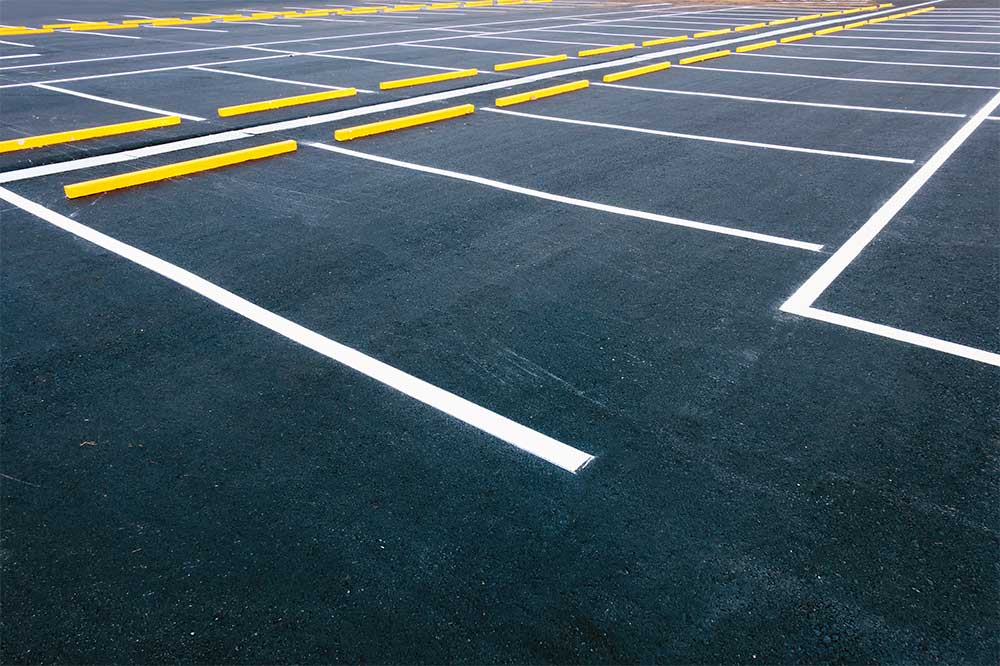Revamp Your Building's Allure: Hot Mix Asphalt Paving for Regrading Projects
Wiki Article
Checking Out the Ecological Advantages of Warm Mix Asphalt
The application of Warm Mix Asphalt in infrastructure jobs presents a compelling case for sustainable development and environmental stewardship. By delving into the detailed information of its production processes and the cutting-edge usage of recycled products, a much deeper understanding emerges of exactly how this modern technology exceeds mere surface applications. The environmental advantages of Warm Mix Asphalt extend far beyond initial impressions, providing a nuanced point of view on exactly how this material can lead the way for a greener future.
Minimized Greenhouse Gas Emissions
The production process of Warm Mix Asphalt involves heating the combination of accumulation and asphalt binder to high temperatures. By integrating recovered asphalt pavement and recycled asphalt roof shingles into the mix, the need for virgin products is reduced, leading to energy savings and lowered emissions linked with removal and processing.Researches have revealed that Hot Mix Asphalt sidewalks have a smaller sized carbon footprint over their life process compared to other sidewalk alternatives. The toughness and recyclability of Warm Mix Asphalt better improve its environmental benefits by decreasing the demand for regular maintenance or substitute, thereby conserving resources and decreasing exhausts associated with restoration tasks.
Power Efficiency and Preservation
The production procedure of Warm Mix Asphalt not just lowers greenhouse gas discharges however also adds considerably to power performance and conservation efforts. Energy performance is a key benefit of Hot Mix Asphalt production contrasted to other sidewalk types. The toughness of Warm Mix Asphalt minimizes the frequency of maintenance and restoration, leading to long-term power financial savings.Lasting Sidewalk Solutions

One secret element of sustainable pavement solutions is using recycled products such as recovered asphalt sidewalk (RAP) and recycled asphalt roof shingles (RAS) By incorporating these products into the asphalt mixtures, the need for virgin sources is reduced, leading to lower energy usage and greenhouse gas exhausts throughout production. Furthermore, the reuse of these materials helps draw away waste from landfills, adding to a more circular and sustainable economic climate.
Furthermore, lasting pavement services concentrate on optimizing sidewalk style to improve efficiency and long life. Methods such as cozy mix asphalt (WMA) and stone mastic asphalt (SMA) improve the sturdiness and durability of pavements, minimizing the demand for frequent repair services and replacements. By executing these cutting-edge methods, facilities programmers can create pavements that not only satisfy high-performance criteria however also reduce their ecological impact.
Minimized Environmental Influence
With an emphasis on sustainability and eco-conscious techniques, pavement solutions are designed to lessen the environmental effect of building and construction and maintenance procedures. Hot mix asphalt, specifically, provides several advantages that contribute to decreasing the overall ecological impact of road facilities. One essential element is the recyclability of asphalt, which can be recycled numerous times without jeopardizing its top quality. This particular assists in preserving natural deposits and reducing the amount of waste sent to land fills.Moreover, the production of hot mix asphalt emits lower levels of greenhouse gases contrasted to various other pavement products, making it an extra ecologically pleasant option. The energy efficiency of asphalt plants has actually also boosted throughout the years, causing minimized gas intake and reduced discharges. In addition, the smooth surface area of warm mix asphalt lowers rolling resistance for cars, resulting in reduced gas consumption and decreased air pollution from vehicle exhausts.
Payment to Environment Change Mitigation
Warm mix asphalt plays a vital function in mitigating climate modification via its sustainable properties and reduced ecological effect. One considerable payment to environment adjustment reduction comes from the power efficiency of warm mix asphalt production. Contrasted to various other pavement alternatives, the production procedure for hot mix asphalt takes in less power and discharges lower regrading degrees of greenhouse gases, thus minimizing its total carbon footprint.
Additionally, hot mix asphalt's ability to mirror sunshine, referred to as albedo, aids in reducing city warm island results. By reducing heat absorption and retention, hot mix asphalt sidewalks can reduce the demand for air conditioning in urban areas, subsequently reducing greenhouse gas discharges related to energy consumption for cooling objectives.
Additionally, the sturdiness and recyclability of warm mix asphalt further improve its climate modification reduction capacities. Regrading. The lengthy lifespan of asphalt sidewalks minimizes the requirement for constant repair services or replacements, ultimately lowering the carbon discharges connected to roadway maintenance activities. Moreover, the recyclability of asphalt materials minimizes the need for virgin resources and lowers the environmental influence of pavement construction, aligning with lasting practices for climate modification mitigation.
Conclusion
To conclude, the ecological benefits of Warm Mix Asphalt demonstrate its substantial payment to decreasing greenhouse gas exhausts, preserving energy, and reducing ecological influence. This lasting pavement service lines up with environment modification reduction initiatives, advertises resource conservation, and improves facilities growth. By making use of recycled products, energy-efficient production procedures, and sturdy design, Hot Mix Asphalt plays a critical role in fostering a much more eco-friendly strategy to facilities building and construction.The manufacturing procedure of Warm Mix Asphalt entails heating up the blend of accumulation and asphalt binder to high temperature levels. By integrating recovered asphalt sidewalk and recycled asphalt roof shingles into the mix, the requirement for virgin products is lowered, leading to power financial savings and decreased discharges associated with extraction and handling.
One trick element of sustainable pavement solutions is the use of recycled products such as redeemed asphalt sidewalk (RAP) and recycled asphalt tiles (RAS) Strategies such as cozy mix asphalt (WMA) and rock mastic asphalt (SMA) enhance the toughness and durability of pavements, reducing the demand for frequent repair work and replacements. Compared to various other pavement options, the manufacturing procedure for hot mix asphalt takes in less power and gives off lower levels of greenhouse gases, thus reducing its total carbon footprint.
Report this wiki page